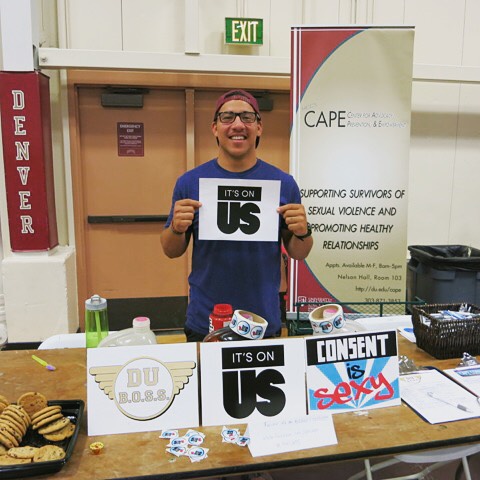The past few weeks at DU have seen multiple reports of sexual assault, including a rape and three forcible fondlings. These incidents are obviously a concern for students, parents and the university itself in addressing and processing these occurrences. DU has a responsibility to respond and act upon these reports in order to protect and promote safety for all students. So far the university’s response to the assaults is appropriate and progressive, yet more emphasis needs to be placed on student action and defense courses in the effort to promote safety and prevention.
In an email entitled “Working toward a culture of safety and respect” received on Thursday Feb. 4, the Chancellor addressed the recently reported sexual assaults, followed by the university’s continued efforts in engaging with improving Title IX procedures surrounding sexual violence. The email provided technical information on the steps being taken through Title IX to address the sexual assaults as well as improve DU’s response to assaults in the future (such as through more appropriate response timing and victim outreach). Though this email seemed to lack emotion, the effort behind it is sincere in wanting to create a safe campus for students, as evidenced by the increased number of Campus Safety patrols; however, this effort and change needs to take part in student culture in addition to any administrative reform.
The Center for Advocacy, Prevention, and Empowerment (CAPE) is a strong organization on campus that deals with sexual assault violence through multiple pathways that are all safe and beneficial for students. CAPE helps students through services of education, making a report, helping a friend, finding support and being a safe and confidential place for students to talk. The “Be a B.O.S.S.” campaign is also part of the CAPE program, allowing students to get involved in promoting a culture of safety and gender equality on campus. This campaign is visibly present on campus as an important show of support for victims as well as a promotion of consent and safety to prevent future sexual assaults. Other student organizations such as the Student Coalition for the Eradication of Sexual Assault (SCESA) and the Graduate Women’s Council are also large components of creating a positive environment and movement on campus. These student-focused efforts are extremely important, deserving of more attention and support for all the work that they do to create resources and safety for all students.
While these organizations are vital for creating a safe student culture at DU, there should also be an increase in awareness and education on personal protection and self defense. The fact that DU offers self defense courses needs to be widely presented and emphasized so students know that they have the power and ability to take safety into their own hands. Campus Safety provides numerous classes from basic self-defense to rape aggression defense, and these courses should be constantly available and communicated on campus. Giving students a sense of power and ability to defend themselves if need be is a positive change that needs to be constantly highlighted by student organizations as well as DU administration.
A change on campus in consideration of victims and prevention is a key step to moving forward. The DU administration and Campus Safety can only take so many steps to implement programs and responses; the rest of the change must come through supporting advocacy organizations such as CAPE, and through students taking personal responsibility for prevention efforts and safety through self defense.










